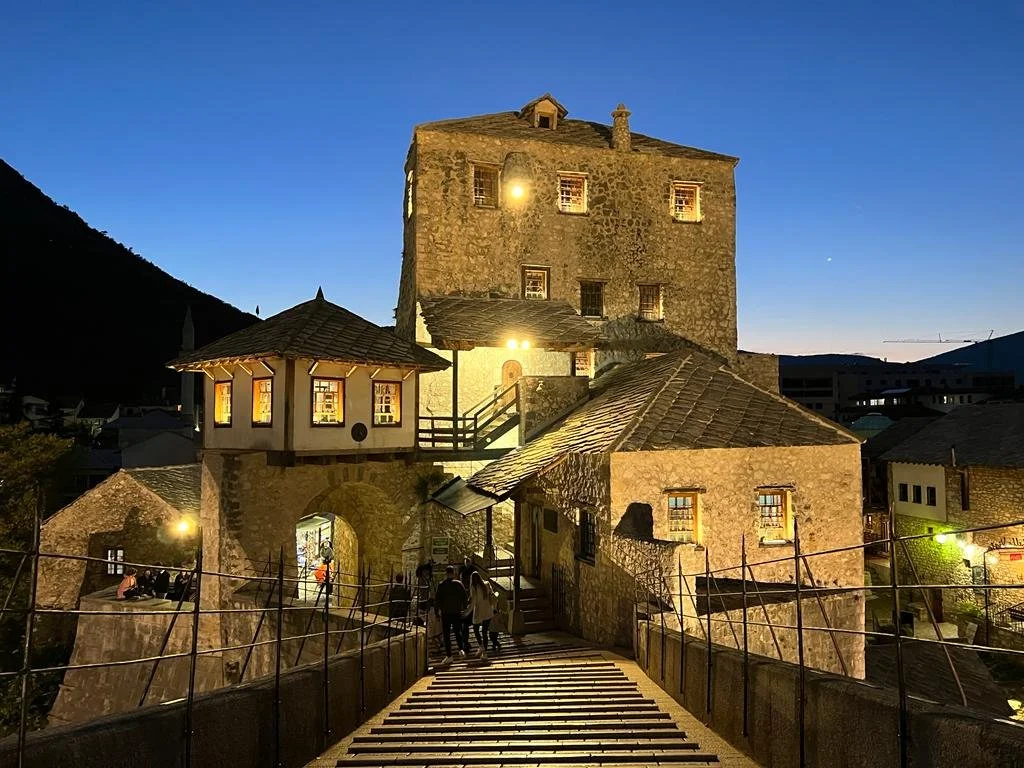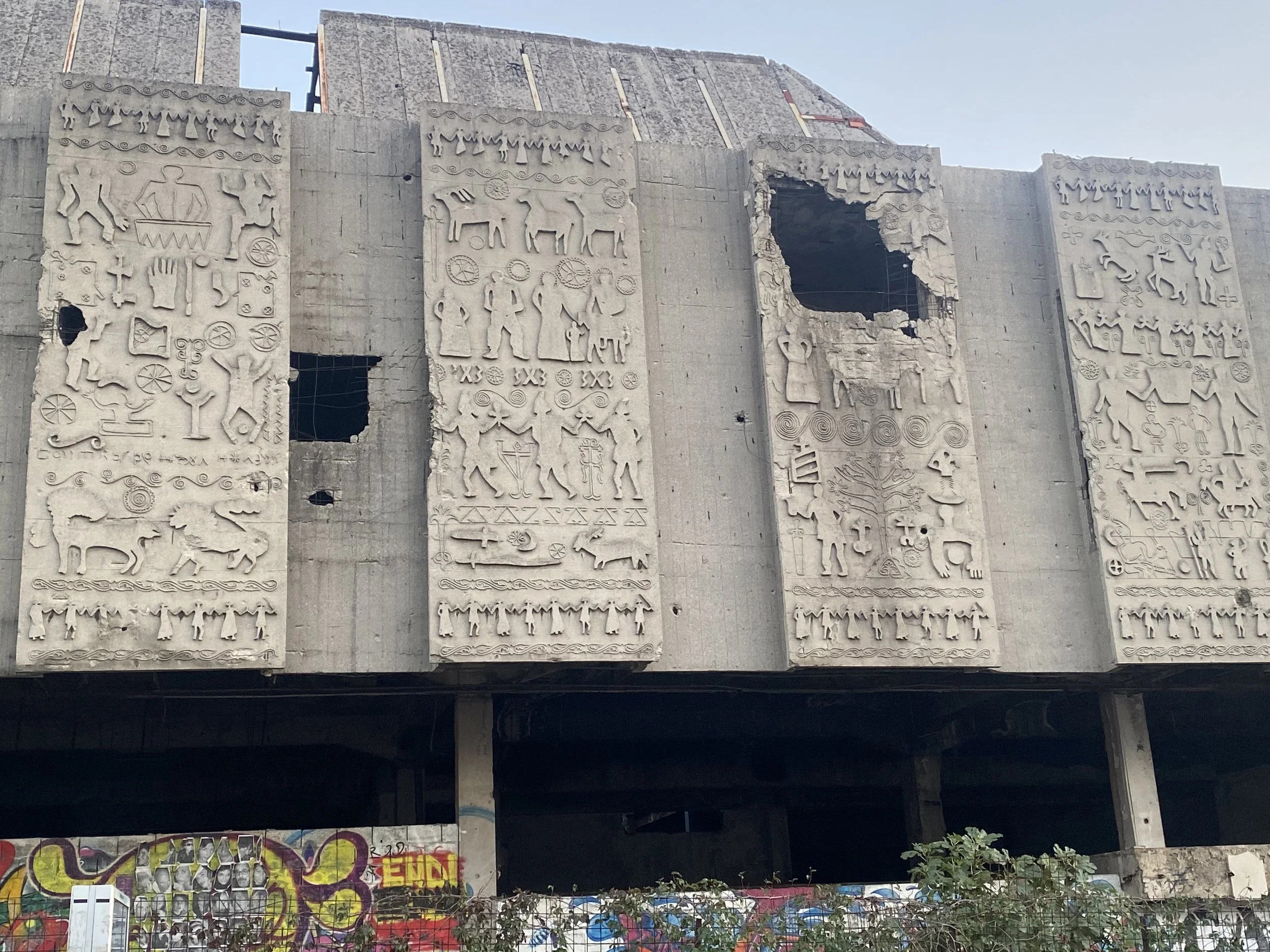MISSION STATEMENT
From 15th to 20th of October 2021, a group of young experts from the region in cooperation with a team of the Austria-based think tanks – International Institute for Peace, the Karl-Renner Institut and the Austrian Institute for International Affairs – went on a study trip to Sarajevo, Jajce and Mostar. The group met with diplomats, politicians, head of states, the EU, the OHR and civil society representatives to discuss alternative horizons which ultimately could pave a way for BiH to become more prosperous and more democratic and to provide a perspective for the people to stay in the country instead of leaving it for good. With all the difficulties and challenges BiH is facing, it is important not to give up hope and to look for alternatives.
Twenty-six years ago, the Dayton Peace Agreement ended the war and laid the foundation of the constitutional and institutional architecture of the state of Bosnia and Herzegovina consisting of two entities, the Federation of BiH and the Republika Srpska. Today, the country not only still faces enormous challenges but is also going through one of the biggest political crises. Corruption is widespread, ethnonationalism is rising and it influences the educational and political system on a large scale, infrastructure is lacking, economy is weak, the health-care system is insufficient, and pollution is extremely high.
High Representative of International Community Christian Schmidt warned in his report to the United Nations Security Council in early November 2021 that BiH is in imminent danger of breaking apart, and there is a “very real” prospect of a return to conflict. Ruling coalition in Republika Srpska led by Milorad Dodik, member of the state-level tripartite Presidency, is threatening to re-establish their own army, intelligence service and a tax-unit, declaring state-level institutions illegal. This would lead to de-facto secession of Republika Srpska and collapse of legal and institutional architecture of BiH that has been developed since 1995.
All those challenges hinder the path of BiH to become closer to the European Union and to become a prosperous market-based economy and democratic country. The lack of perspectives drives many people to leave the country in search for a better life (mostly to EU countries) - with the intention to never come back. Especially in rural areas, the lack of human resources becomes ever more evident and poses serious problems for the continuation of the important work done by civil society organizations and NGOs, and by enterprises in general.
While the Dayton Agreement ended the war, it did not bring peace to BiH. The origins of the violence which occurred during the war – including crimes against humanity experienced by all three ethnicities – the Muslim Bosniaks, the Bosnian Croats and the Bosnian Serbs, to different extents, were prosecuted by the International Criminal Tribunal for the Former Yugoslavia (ICTY) and are on-going before the local courts. Unfortunately, they were never processed at a wider societal level and in an inclusive way. The buzzword “reconciliation” is something that people look at with suspicion. Emotions are an important tool for politicians to gain political capital based on victimization of the own group while not acknowledging or diminishing own crimes.
In addition to the already difficult constellation of the state of BiH, there are regional and international actors involved. Croatia has an eye on the Bosnian Croats, Serbia is supporting Republika Srpska. The European Union is facing criticism for stabilizing the political stalemate while the existence of the Office of the High Representative with extensive external executive power is questioned in general. Furthermore, Russia, Turkey, the Emirates, and China are active in the region – economically but also on the political level.
In July 2021, the UN High Representative Valentin Inzko who was serving in BiH for 12 years imposed a law to ban the denial of genocide and the glorification of war criminals, as one of his last acts in office. This contributed to escalation between Republika Srpska on one hand, and the rest of BiH and international community. War narratives, which never disappeared, are high-up on the agenda again and one can feel that many people in BiH are fearing violent outbreaks to an extent which was not seen after Dayton was signed.
INTERVIEWS
Laura Crnić, Student, Faculty of Political Sciences, Zagreb
Hannes Swoboda, President IIP, former MEP, former chair of the S&D group in the EP
Maja Bjelos, Belgrade Security Center
Gerhard Marchl, European Program, Karl-Renner-Institut, Vienna
Dennis Miskic, Austrian Peace Servant at the Srebrenica Memorial Center
Stephanie Fenkart, Director IIP, Vienna
Samir Beharić, Research Officer, The Balkan Forum
Vilson Blloshmi, Student, Albania
Adnan Ćerimagić, Expert, European Stability Initiative, Berlin/Sarajevo




